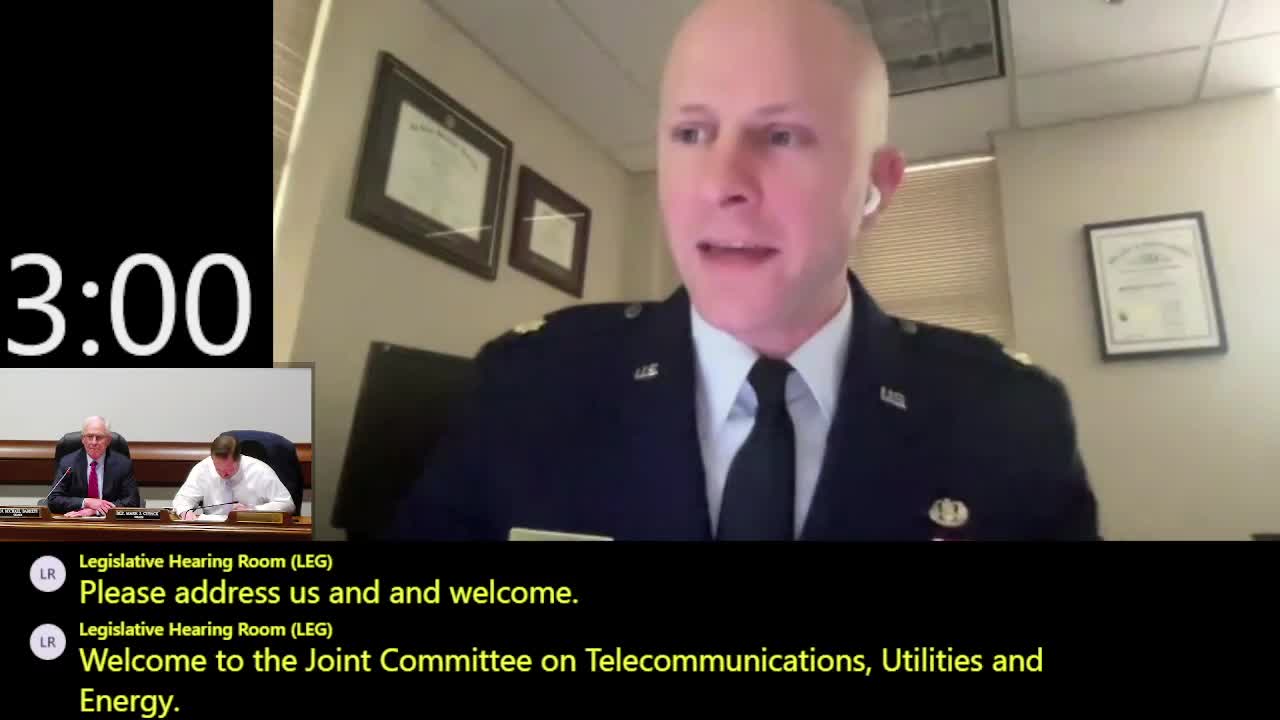Air Force urges exemption for military installations from renewable caps to meet resilience mandates
Get AI-powered insights, summaries, and transcripts
Subscribe
Summary
Major Josiah Bragg of the Department of the Air Force testified that Senate Bill 2232 should exempt federal military installations from state renewable production caps and net‑metering limits so bases can meet statutory resilience and mission‑assurance requirements; he cited proposed plans for roughly 12 megawatts at Hanscom Air Force Base.
Major Josiah Bragg, a judge advocate and regional environmental counsel for the Department of the Air Force, told the Joint Committee on Telecommunications, Utilities and Energy that federal military installations should be exempt from state renewable production caps and net‑metering limitations so they can achieve statutorily required energy resilience.
Bragg testified remotely for the Air Force and identified Senate Bill 2,232 (in transcript rendered as "2232") as the vehicle that would add a new subsection to M.G.L. c.164 to exempt federal military installations from those limits. "Planned and potential solar projects at Hanscom Air Force Base would provide resilient on‑site energy for the base's critical national security missions," Bragg said, explaining the Air Force's interest in on‑site generation to ensure mission assurance during grid outages.
Bragg described energy resilience as part of a DOD statutory obligation and cited federal law requiring protection of critical loads. He told the committee that Hanscom currently proposes initial plans for about 12 megawatts of solar on the installation and that some projects may be DOD‑owned while others could be owned and operated by third parties in partnership with local electric distribution companies. He added that the proposed amendment would allow such partnerships to proceed without ratepayer funding or department approval in certain cases.
Why it matters: Military installations have specific requirements for mission assurance and resilience, and bases often host large workforces and have substantial local economic impact. Bragg said Hanscom has a workforce of roughly 10,000 and contributes billions of dollars in local economic activity. Exempting federal lands from state caps would clear legal and regulatory obstacles for on‑site resilient generation, supporters said.
Committee members asked clarifying questions about the types of projects contemplated and whether final plans exist. Bragg told the committee there were no finalized arrays yet but that initial proposals envision roughly 12 megawatts and partnerships with electric distribution companies to operate or maintain some projects. He also said that some projects might be DOD‑owned while others would be third‑party owned under long‑term arrangements.
No committee action or vote occurred during Bragg's testimony. Members thanked him for testifying and said they would consider the federal‑installation exemption as part of ongoing solar policy deliberations.
